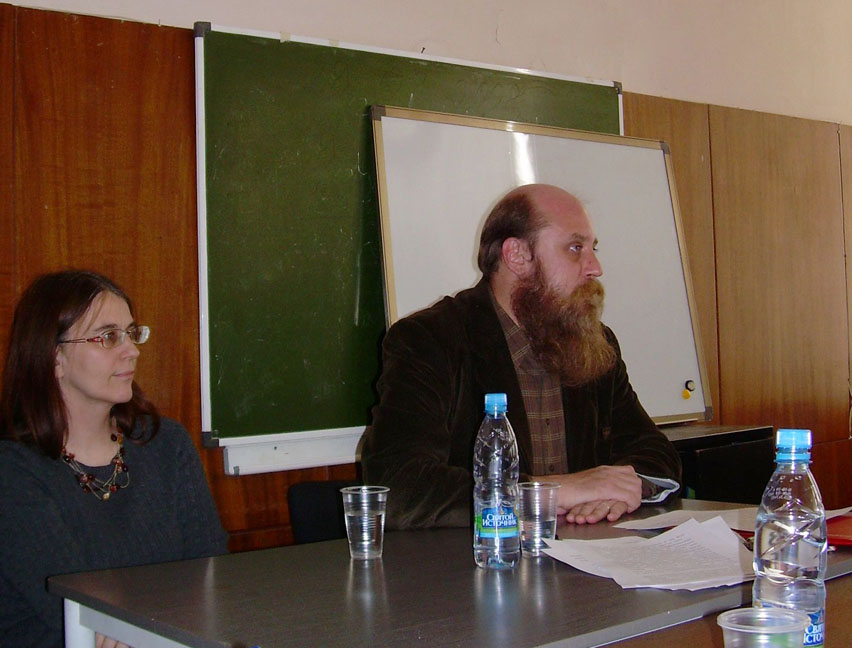New article by Prof. Uspensky: here
pre-Mongolian Rus’, name day, cult of saints, patron saints of Russian princes, Rurikids, historiographical narrative

Abstract
The
article investigates the ways in which the celebration of the name day (imeniny)
of Russian princes or their entourages was presented in the Russian chronicles.
The custom of celebrating the name day was firmly rooted in the Russian
princely environment. For a chronicle narrative, the very rootedness of this
custom and the number of its associated actions plays an important role—it
is this rootedness that makes stories told in the chronicles quite opaque
to the modern reader. A prince’s Christian name and the day of his patron
saint were considered to be important background knowledge for the audience of the medieval compiler. There were,
apparently, clear ideas about appropriate behavior for prince or a person from
his environment on his name day or on the eve of this day but, on the
other hand, such assumptions explain why this kind of “normal” behavior rarely
forms the subject of special reflection in the chronicles. It is not only a
description of the celebration itself that might be very informative, whether
it be a church service, a ceremonial feast with various relatives, or an
exchange of gifts, but also the description of acts and deeds that were
undertaken specifically on a prince’s name day. Therefore, particular attention
is given here to stories about undue or inappropriate behavior on this special
day. The paper deals with the function and nature of such episodes in the
broader context of historiographical narrative.
Keywords
pre-Mongolian Rus’, name day, cult of saints, patron saints of Russian princes, Rurikids, historiographical narrative

Anna F. Litvina, Fjodor B. Uspenskij
Резюме:
Статья посвящена тому, как в летописном нарративе могут изображатьсяименины русских князей или их приближенных. Особое внимание уделяетсярассказам о недолжном, неподобающем поведении на именинах, своих ичужих. В работе рассматривается функция и характер такого рода эпизодов вболее широком контексте историографического повествования.
Ключевые слова:
Древняя Русь, именины, культ патрональных святых, Рюриковичи, летопис-ный нарратив

No comments:
Post a Comment